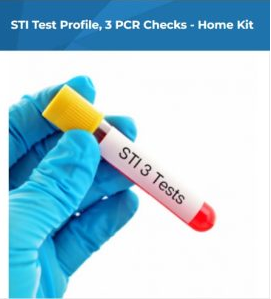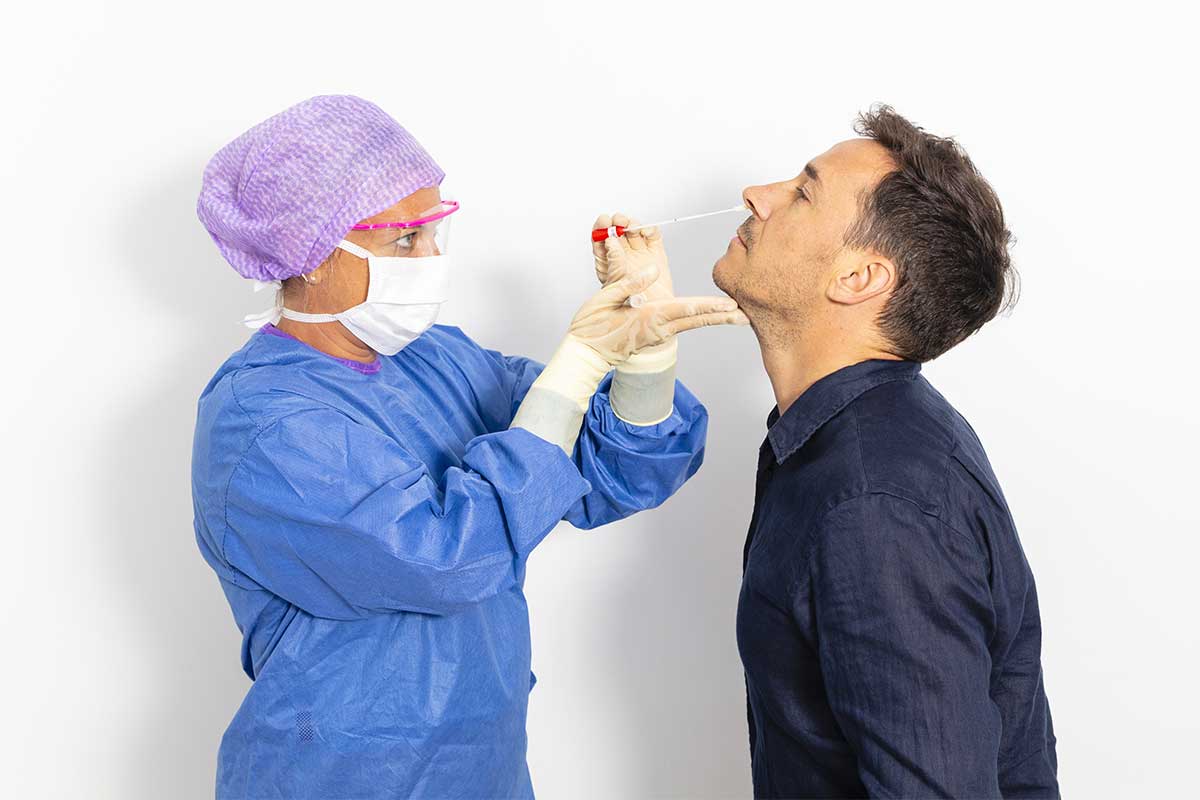In the ongoing pandemic, talking about covid tests in London is a hot topic for everyone as it is a valuable resource that provides crucial information about the coronavirus, its transmission, symptoms, and prevention. This article presents a complete and easily understandable guide to help you broaden your understanding of COVID-19 and navigate these challenging times. But along with this, we’ll also cover the knowledge of sexually transferrable infection, which remains the top concern of sexually active individuals. Doctors use STD tests to determine the sexual health status of a person. So get ready to be informed about the crucial information regarding these investigations

Understanding COVID-19 and Recognizing its Symptoms:
Coronavirus is a respiratory illness caused by the novel coronavirus, SARS-CoV-2. It has spread globally, leading to a pandemic. It primarily spreads through respiratory droplets when an infected person coughs, sneezes, talks, or breathes near others. Understanding the virus’s characteristics and how it applies is essential in curbing its transmission.
However, it is necessary to know that corona symptoms can vary from mild to severe. It may include fever, cough, sore throat, fatigue, body aches, loss of taste or smell, and breathing difficulty or breathlessness. Additionally, some individuals may experience no symptoms, making it crucial to stay informed about common signs to detect potential infections. Regular monitoring also plays a vital role in knowing one’s covid status.
Preventing COVID-19:
Prevention plays a significant role in controlling the spread of this virus. Simple measures can go a long way in safeguarding yourself and others:
- Vaccination: Vaccination is one of the most effective ways to protect against severe illness, which can also reduce the chances of spreading the virus.
- Masking and Respiratory Etiquette: Wearing masks in public settings, practicing good respiratory hygiene, and covering coughs and sneezes help prevent the spread of respiratory droplets.
- Hand Hygiene: Regularly washing hands with soap and water for at least 20 seconds or using hand sanitizers with at least 60% alcohol content helps eliminate potential viruses on hands.
- Social Distancing: Maintaining physical distance, especially in crowded places, reduces the risk of close contact with infected individuals.
Covid Testing in London:
Checking for the coronavirus is crucial for diagnosis, contact tracing, and monitoring the virus’s spread. Different types of exams are available:
- PCR: Polymerase Chain Reaction (PCR) detects the virus’s genetic material and conducts deep findings. Furthermore, they are considered highly accurate and reliable.
- Antigen Examining: Antigens detect specific proteins from the virus. They provide quick results but may have a higher chance of false negatives.
- Antibody Exams: Antibody exams identify past infections by detecting antibodies produced in response to the virus. Moreover, they help determine previous exposure.
If you experience symptoms or have been in close contact with someone infected with COVID-19, it is essential to get examined promptly. Contact your healthcare provider or local investigating centers to schedule an appointment. Follow their instructions regarding sample collection and screening procedures.
Interpreting COVID Test Results:
Understanding the results of covid test in London is crucial for appropriate actions and decision-making:
- Positive Result: A positive result indicates the presence of SARS-CoV-2 in your system. It means your body contains the virus, and you must isolate yourself to prevent spreading it to others.
- Negative Result: A negative result suggests no detectable virus during an examination. However, it does not guarantee that you are not infected, especially if you were recently exposed. Continue practicing preventive measures regardless of the exam result.
Understanding STDs:
These conditions are infections that primarily transmit through sexual contact. Bacteria, viruses, or parasites can cause them. Common sexual diseases include chlamydia, gonorrhea, syphilis, herpes, HPV (human papillomavirus), and HIV (human immunodeficiency virus). Furthermore, understanding the different types of sexual diseases and their modes of transmission is essential for prevention and early detection.
Importance of STD Testing:
Screening for sexual diseases is crucial for several reasons:
- Early Detection: Many of these diseases may not show noticeable symptoms or mild and easily overlooked symptoms. But regular screening can help detect infections early, allowing early treatment, and also helps in reducing the risk of complications.
- Protecting Yourself and Your Partners: Getting screened regularly and knowing your sexual health status is essential for protecting yourself and your sexual partners. It promotes responsible sexual behavior and helps prevent the spread of infections.
- Peace of Mind: Knowing that you are free from any sexual disease provides peace of mind and allows you to engage in sexual activities with confidence.
Types of STD Tests:
Different types of exams are available for various sexual diseases. The most common ones include:
- Blood Sample: Blood exams detect the presence of antibodies or specific markers in the blood to identify infections such as HIV, syphilis, and hepatitis.
- Urine Sample: The use of urine exams is to screen for chlamydia and gonorrhea. They involve providing a urine sample. Then the medical professionals will check the sample for any abnormality.
- Swab Sample: Swab exams involve collecting samples from the affected area, such as the genitals, throat, or rectum, using a swab. These samples are then checked for infections like herpes or gonorrhea.
Screening for STDs:
For the screening of sexual diseases, you can:
- Visit a Healthcare Provider: Schedule an appointment with your healthcare professional or a sexual health clinic. They will guide you on the appropriate exams based on your sexual history and symptoms.
- Confidential Home Monitoring Kits: Some organizations offer discreet and confidential home monitoring kits. These kits allow you to collect samples at home, which you must send to a lab for analysis. Results are typically provided online or over the phone.

Interpreting STD Test Results:
Understanding STD exam results is crucial for appropriate action and follow-up:
- Positive Result: A positive result indicates the presence of an infection. It is necessary to consult with a medical professional for further evaluation and treatment and to discuss steps for preventing the spread to others.
- Negative Result: A negative result suggests no evidence of infection at the time of monitoring. However, it does not guarantee that you are free from sexual diseases. It is important to continue practicing safe sexual behaviors and regular monitoring.
Conclusion:
The COVID test in London is a comprehensive guide to enhance your knowledge of the coronavirus, its symptoms, prevention, and monitoring. Similarly, the STD test is a complete guide to expand your understanding of sexually transmitted diseases, the importance of regular monitoring, and interpreting exam results. By understanding the virus’s characteristics and taking appropriate preventive measures, we can collectively contribute to curbing the spread of these types of conditions. Contact medical professionals or reliable sources for accurate information and guidance if you have any concerns. Moreover, stay informed and safe, and let’s navigate this challenging period together. Furthermore, prioritize your sexual health and make informed decisions for a healthy future.

